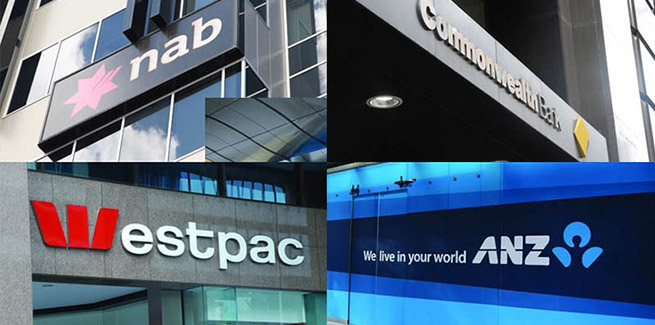Australia and New Zealand Banking Group Ltd (ANZ) , the Commonwealth Bank of Australia (CBA), National Australia Bank (NAB) and Westpac Banking Corp (Westpac) have all released their latest financial updates, revealing that mortgage activity in the last quarter continued at pace, while deferred loans continue to drop.
CBA
Earlier this month, CBA released its half-year results for the 2021 financial year, revealing that its loan book had grown to $498 billion as at 31 December 2020, up $13 billion in just six months.
CBA had 25,000 active mortgage deferrals as of 31 January and around 2,000 active deferrals on business lending.
This week, the three remaining major banks also released updates on their activities – with all showing improved mortgage momentum.
ANZ
In a trading update for the quarter to 31 December 2020, ANZ revealed that its home loan balance was up $5 billion, rising from $275 billion in September 2020 to $280 billion at the end of the December quarter.
Approximately 15,000 home loans worth $6 billion were still on repayment deferrals, with ANZ saying approximately 40 per cent are scheduled to roll off in February.
It announced an unaudited statutory profit after tax for the first quarter to 31 December 2020 of $1.62 billion with an unaudited cash profit from continuing operations of $1.8 billion, up 54 per cent on the average of the last two quarters of 2020.
ANZ CEO Shayne Elliott said: “This is a strong performance in volatile trading conditions that again highlights the benefits of disciplined execution of our strategy as well as maintaining a simpler and well-balanced portfolio of businesses.
“We’re pleased to have achieved these results for shareholders while also helping customers in difficulty and providing the vital lending needed to support the economic recovery. All our major businesses performed well through the quarter with market share gains in our key home loan market in Australia as well as record home loan volumes in New Zealand.”
NAB
While NAB didn’t provide an update on its loan book size in its quarterly trading update this week, it did reveal that it has assisted more than 4,000 NAB customers in buying their first home under the First Home Loan Deposit Scheme and that deferrals were also reducing.
As at 31 December, deferral balances on mortgages had dropped to $2 billion, (down from a peak of $38 billion) and $1 billion of business loans (down from a peak of $19 billion).
The bank also revealed that it has added 440 new roles to its business and private banking division, with another 110 set to come on board over the remainder of FY21, as it ramps up its business lending presence.
Westpac
Meanwhile, Westpac revealed that it had seen average weekly applications up 24 per cent from 4Q20 and up 34 per cent from 1Q20.
However, its mortgage portfolio continues to contract – falling from $446 billion in March 2020 to $441 in September 2020 and down to $439 billion by the end of the December quarter.
Similarly, unsecured lending portfolio is down to $15.5 billion, dropping from $15.7 billion in September 2020 and $18.4 billion in March 2020.
Westpac had 26,000 mortgage deferral packages still outstanding at 31 January 2021, totaling $10.7 billion, with an additional $400 million in SME loans deferred.
However, the bank said it expected to see “significant roll-off” in February and March.
Westpac Group CEO Peter King noted that the bank was “beginning to improve momentum in mortgages and while the book was little changed over the half, [it had] processed a significant increase in applications”.
“Low interest rates, rising house prices, new construction and high consumer confidence all point to continued recovery in home lending activity in 2021,” Mr King said.
He added that he was “particularly proud that [the bank’s] focus on supporting customers has contributed to a high proportion of customers being able to manage the impacts of COVID-19 and return to repayments”.
The figures echo those reported by major brokerages, with Mortgage Choice revealing in its most recent figures that its network of brokers were sending a growing proportion of loans to the “four pillars”.
Indeed, the Mortgage Choice stats show that in the six months to 31 December 2020, the major banks accounted for 40 per cent of Mortgage Choice settlements, the highest level in two years.
When including subsidiaries (i.e. St George and Bankwest), this share rose to 55 per cent, according to Mortgage Choice.
CEO Susan Mitchell told Mortgage Business that this shift in market share away from some of the building societies and smaller banks could be attributed to “attractive fixed rates being offered by the big four banks and cashback offers”.
Similarly, aggregation group AFG also recently revealed that major banks (and their associated brands) were still receiving the majority of mortgages from AFG brokers in Q2FY2021, accounting for 58.8 per cent of all mortgages lodged.
[Related: Mortgage demand up 19.3% in December quarter]
 ;
;